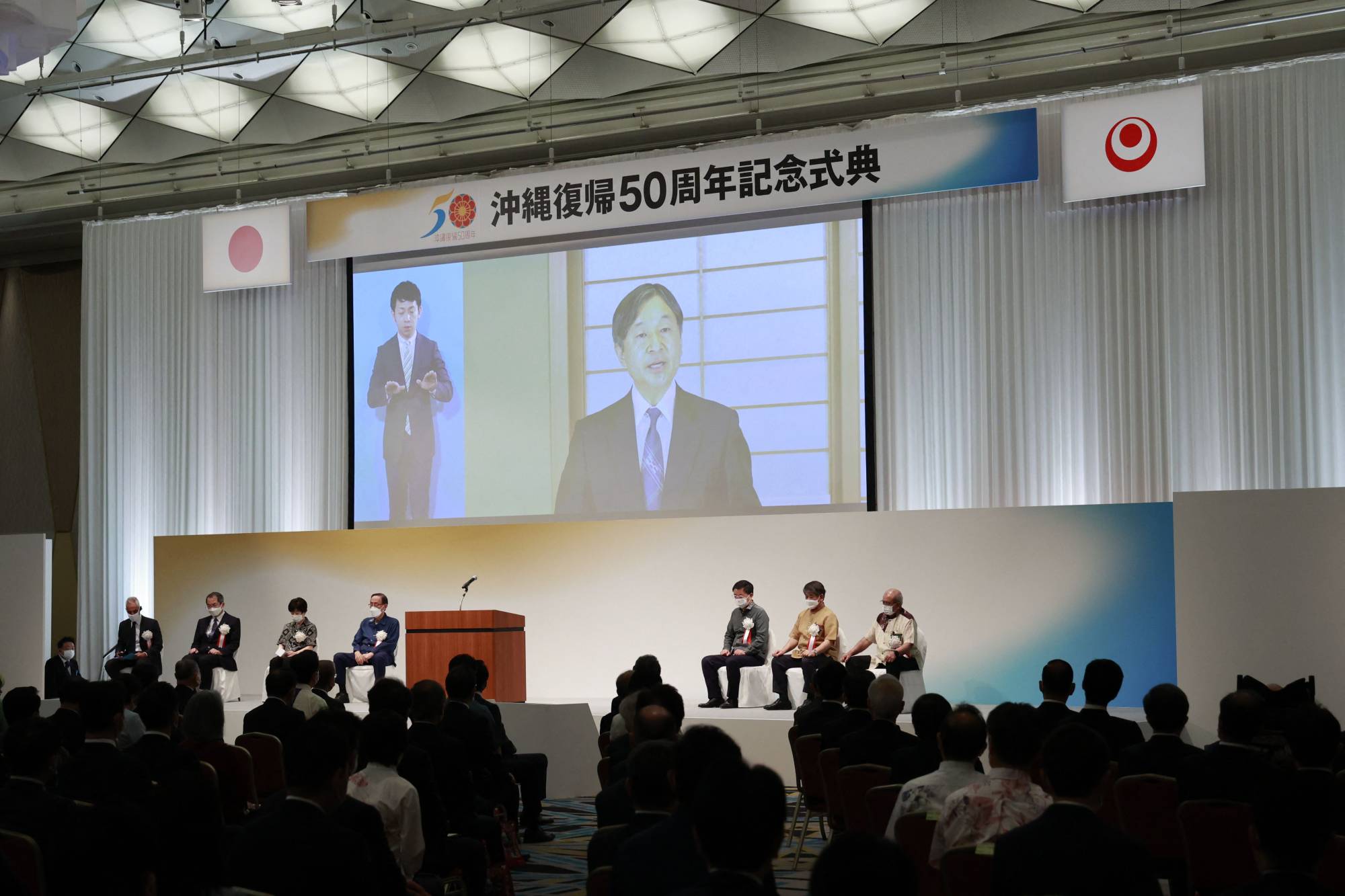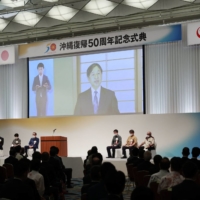On May 15, Okinawa marked the 50th anniversary of its return to Japan from U.S. rule. For many Okinawans, it was an important moment to reflect on their past, present and future. How far has the island come since then?
It’s an ongoing discussion with a lot of useful vocabulary. Two words in particular stood out in headlines: 復帰 (fukki) and 返還 (henkan). Both can mean “return,” but they’re not interchangeable.
With 復帰, the focus is on “reverting back” or もとどおりになること (motodōri ni naru koto, to return [something] to how it was before). For example, 新型コロナウィルスで入院していた社員が職場に復帰した (Shingata koronauirusu de nyūin shite-ita shain ga shokuba ni fukki shita, An employee who was hospitalized due to COVID-19 returned to work).
Unlike the more common 戻る (modoru), which simply means “to go back,” using 復帰 suggests that the employee has not only returned to work but that things have returned to the condition they were in before the change took place. Maybe they haven’t heard of コロナ後遺症 (korona kōishō, long COVID).
On the other hand, 返還 is a “return” that relates to ownership: アメリカが日本に沖縄を返還した (Amerika ga Nihon ni Okinawa o henkan shita, America returned Okinawa to Japan).
It’s also important to note that 返還 is much more formal than 返す (kaesu, to return). For example, you would 借りた鉛筆を返す (karita enpitsu o kaesu, return a pencil you borrowed) rather than 返還する (henkan suru).




